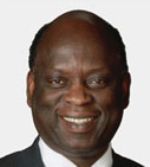CORRECTION: Sudan willing to accept UN support
(In “Sudan to accept peacekeepers in Darfur – envoy,” at 20:19. p.m. ET, it was incorrectly reported that Sudan’s envoy said his nation was close to accepting a 22,000 U.N. peacekeeping force.)
March 27, 2007 (WASHINGTON) — Sudan’s ambassador said Tuesday that only minor issues stand in the way of his government’s willingness to allow the United Nations to provide significant support for efforts to end the violence in Darfur.

In December, Sudanese President Omar al-Bashir indicated support for the overall U.N. plan, including the deployment of 22,000 troops. But he backtracked on the troop commitment this month, generating an angry response from U.S. officials who see the deployment as the best hope for peace in Darfur.
Al-Bashir’s rejection was spelled out in a letter to U.N. Secretary-General Ban Ki-moon. A senior State Department official said 10% of the letter was supportive of the peacekeeper proposal, 20% was outright rejection and 70% was an offer to negotiate terms of the deployment. The official, asking not to be identified because he was not authorized to speak on the record, said any such negotiation was unacceptable.
Al-Bashir’s reversal has prompted the Bush administration to consider economic sanctions against Sudan.
Ukee said his optimism about Sudan’s acceptance of a U.N. role was based on discussions in recent days with top officials in Khartoum.
“The ministers said there are certain things we have to agree on that should be resolved in next few days,” he said, speaking at a forum sponsored by the Institute on Religion and Public Policy.
Hundreds of thousands of Darfurians have died during four years of civil strife, and more than 2.5 million people are living in rundown camps for the displaced. The Bush administration has blamed the government and government-backed militia for most of the suffering.
Large-scale deployment of peacekeepers, under the U.N. plan, would follow initial preparatory phases. Ukee said his government has not stood in the way of implementing these stages. But, he said, U.N. inefficiency has blocked forward movement.
“They have done nothing,” he said.
U.S. and U.N. officials have said that a major problem for implementation of the U.N. plan, aside from resistance by the Khartoum government, has been a shortage of peacekeepers available for duty in Darfur.
Ukee blamed anti-government rebels in Darfur for the absence of a permanent peace after four years of strife.
He said instead of rallying in support of a single leader to negotiate peace, the rebels have fragmented into a multiplicity of groups.
“Every other night a new one forms,” he said. “A solution cannot come about under such circumstances.”
(AP)
